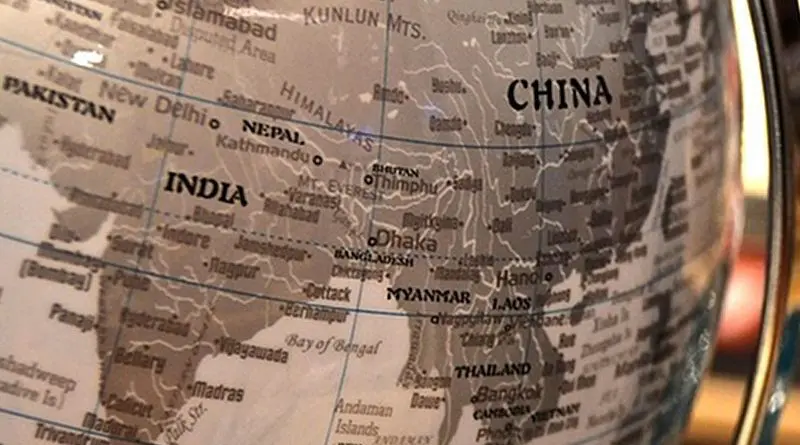The ‘India Out’ Phenomenon: A New Era In South Asian Politics – OpEd
South Asia is witnessing a gradual shift in its geopolitical landscape which has high resistance level against India’s influence in South Asian countries. The “India Out” movement taking shape in Maldives, Bangladesh, Nepal, and Bhutan is a collective voice rising against India’s aggressive interventions. Previously seen as a regional guardian, India is today on the receiving end of allegations of political manipulation, economic coercion and even harnessing its intelligence agencies for installing India friendly leadership in its neighboring states. It is also part of larger movement of smaller South Asian nations asserting their sovereignty vis a vis India’s march to be a superpower.
For decades, India has presented itself as an emerging power for balancing South Asia, largely preoccupied with the rationale of intervention for the sake of regional security. Yet the tone of its maneuvers has of late increasingly begun to be seen as double edged. As China makes deep inroads into South Asia through its Belt and Road Initiative (BRI), India has carried out counter measures against the rising Chinese influence using a combination of diplomatic, economic pressures and intelligence operations.
Publically, India wishes to have amicable relations with China, and its behavior is competitive in reality. Neighboring nations have reason to suspect India in its ‘double game’ of diplomacy and strategic containment. Growing discontent with Indian interference, meanwhile, has prompted the Maldives, Bangladesh, Nepal and Bhutan, which have always traded and secured on India’s goodwill, to rethink their relations with New Delhi.
Another aspect of the ‘Rodina nadvliga’ movement is in revealing the Indian attempts to tamper with affairs of domestic politics in India’s neighboring states in secrecy. India’s regional ambitions have been questioned from backing pro-India leaders to suppressing nationalist movements. Sheikh Hasina Sheikh Hasina’s fall has long been considered an ally of New Delhi; it showed how far India was involved in keeping the regime that suited its interests. India’s dominance in trade and security is helped by an oppressive government that its political opposition in Bangladesh have accused it of backing.
Similarly, Nepal’s democratic movements are in conflict with Indian interference. Nepal’s sovereignty has been undermined by India’s intelligence agencies that have been alleged to be meddling in electoral outcomes in an attempt to install pro-India governments. Traditionally a close ally of India, Bhutan too is seeing increasing frustration with Indian economic and political dominance that prevents its foreign relations with China and other international players.
The “India Out” movement has particularly targeted the Maldives, especially following the election of as President Mohamed Muizzu who has been vocal in his opposition to Indian military presence in Maldives. This is a major shift from the Maldives foreign policy since his administration’s expulsion of Indian military personnel, which has closer alignment to China. The move comes after the unsurprising revelation that India secretly meddled as part of its efforts to topple pro-China Muizzu, through bribery and political manipulation. Public anger was moreover fed by reports that Indian intelligence agents have been coordinating with Maldivian politicians, and anti-India sentiments spread across the archipelago.
They added to tensions, however, caused by derogatory remarks about Maldivian leadership by Indian officials. Having the strategic location along the major maritime trade routes, the Maldives is the critical geopolitical player. This displacement of India’s influence in the country, as China’s reach grows increasingly stronger, is a realignment of power in the Indian Ocean region.
Growing anti-India sentiments across South Asia have little to do with politics and a great deal to do with economics. Traditionally, India has held the primacy in regional trade, infrastructure projects and investment flows. But the power that its economic leverage used to give it is now seen as a tool of coercion, not cooperation. Therefore, countries like Bangladesh and Maldives are diversifying their economic partnership to reduce likelihood on India and have bigger partnership from China, Middle East and western countries.
The boycott of Indian products and entertainment under the ‘India Out’ movement in Bangladesh is a political and cultural boycott as much as it is an economic one. This move is not borne out of India’s economic interests as much as it is about achieving economic sovereignty and a more equitable trade relationship.
The critics say India has no longer adhered to its democratic ideals in foreign policy as it has continued to crush political opposition to its presence in neighboring countries. Critics of Indian interference, however, have been exiled, imprisoned or politically suppressed as opposition leaders, journalists and activists. The networks involved in controlling media narratives, tracking political dissidents, and blackmailing officials to hold ‘friendly’ governments seem to stem from India’s intelligence networks.
Bangladeshi political activist Pinaki Bhattacharya, who has led the ‘India Out’ movement from France, also highlights the transnational nature of India’s suppression tactics. While advocacy groups like Bhattacharya continue to directly challenge India’s role in Bangladesh, local opposition parties like the Bangladesh Nationalist Party (BNP) and Jamaat e Islami remain prudent and keep their distance at least as part of a tacit strategy to fend off an immediate confrontation.
While the India Out phenomenon serves as an isolated expression of political dissent, it is a wider shift that is symptomatic of a broader, regional change for sovereignty and self-determination. South Asian nations repositioned to check Indian hegemony in the region. Although India still exercises considerable strategic sway, the rise of China as a counterweight gives the rest some new diplomatic and economic options.

